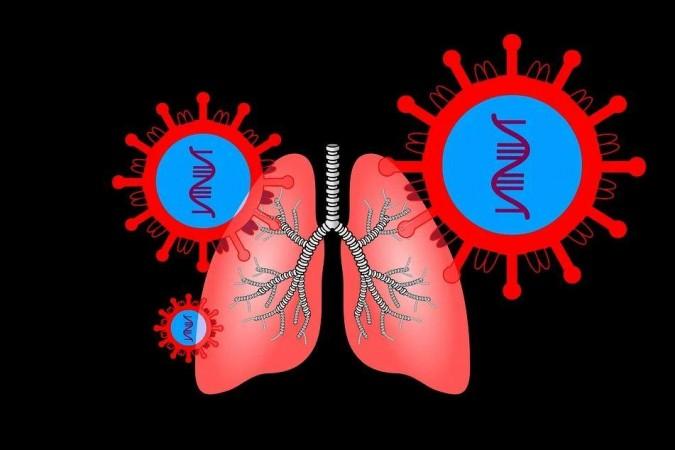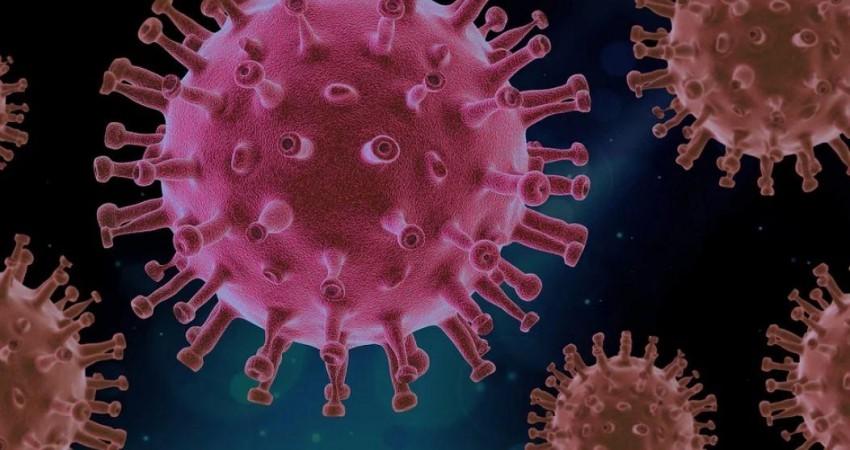As the scientific community is striving hard to find drugs and therapeutic regimens to tackle COVID-19, the SARS-CoV virus has begun unleashing new troops—Variants of Concern (VOC). Therefore, finding a drug that can act against the coronavirus and its dangerous variants is a new challenge. Offering hope, a new study has reported the identification of a new drug that was found to be highly effective in preventing severe COVID-19.
According to scientists from the University of Pennsylvania School of Medicine, the drug diABZI—which activates the innate immune response of the body—showed potent activity against the SARS-CoV-2, including the South African variant B.1.351, a VOC. The findings suggest that diABZI may also help in the treatment of other coronaviruses that cause respiratory illnesses.
"Few drugs have been identified as game-changers in blocking SARS-CoV-2 infection. This paper is the first to show that activating an early immune response therapeutically with a single dose is a promising strategy for controlling the virus, including the South African variant B.1.351, which has led to worldwide concern," said Dr. Sara Cherry, senior author of the study in a statement.
Fighting Dangerous Variants

As of May 2021, four variants of SARS-CoV-2 have been declared as VOCs by the World Health Organization (WHO)—P.1 (Brazil), B.1.617 (India), B.1.351 (South Africa), and B.1.1.7 (UK). Some of the VOCs, such as B.1.351 are far more infectious than the original Wuhan virus. The SARS-CoV-2 virus initially attacks epithelial cells within the respiratory tract. The innate immune system—the first line of the body's defense against pathogens—in the respiratory tract identifies pathogenic viruses through the detection of their specific molecular patterns.
In order to better understand this defensive response, the research team observed human lung cell lines that were infected with SARS-CoV-2, under a microscope. Interestingly, it was that the virus was able to hide, which led to the delay in the early recognition and response of the immune system. Therefore, the authors posited that drugs or small molecules with drug-like properties—that could trigger this immune response in respiratory cells earlier and prevent severe COVID-19—can be identified
Finding A Potent Drug

The authors set out to identify antiviral agonists—chemicals that bind to a specific receptor and make the receptor produce a biological response—that are capable of blocking the SARS-CoV-2 infection. For this, they conducted a high throughput screening of 75 drugs that targeted sensing pathways in lung cells. The effects of these drugs against viral infection were observed under microscopy. Nine potential candidates—including two cyclic dinucleotides (CDNs) who remarkably suppressed the simulation of interferon genes (STING) were identified.
According to Dr. Cherry, CDNs are known for their low effectiveness and make for inadequate drugs. Therefore, the team decided to test diABZI—a newly-developed small-molecule STING agonist. diABZI has not been approved by the US Food and Drug Administration(FDA) yet. However, it is being tested in clinical trials for the treatment of cancer currently. It was found that diABZI showed a potent inhibitory effect against several strains including B.1.351, through the stimulation of interferon signaling

Next, the authors evaluated the effectiveness of diABZI in mice that were infected with COVID-19. As the drug had to reach the lungs of the mice, it was administered via nasal delivery. It was found that mice treated with diABZI show much lower weight loss in comparison to control mice. diABZI-treated mice had a significant reduction of viral loads in their nostrils and lungs. Also, the production of cytokines—signaling molecules that attract immune cells to the site of infection—was found to be increased.
Potential Against Other Coronaviruses
The discovery, therefore, provides evidence supporting the finding that diABZI indeed stimulates interferons for protective immunity. According to Dr. Cherry, the findings of the study strongly suggest that diABZI could very well serve as an effective treatment against the SARS-CoV-2 virus and prevent severe symptoms of COVID-19, along with the containment of its spread.
In addition to SARS-CoV-2, diABZI has also been found to inhibit human rhinovirus and parainfluenza replication in cultured cells. Hence, it could show broad effectiveness against other respiratory viruses, the authors hope. "We are now testing this STING agonist against many other viruses. It's really important to remember that SARS-CoV-2 is not going to be the last coronavirus that we will see and will need protection against," concluded Dr. Cherry.








!['Lip lock, pressure, pyaar': Vidya Balan- Pratik Gandhi shine in non-judgmental infidelity romcom Do Aur Do Pyaar [ Review]](https://data1.ibtimes.co.in/en/full/797104/lip-lock-pressure-pyaar-vidya-balan-pratik-gandhi-shine-non-judgmental-infidelity-romcom.jpg?w=220&h=138)








